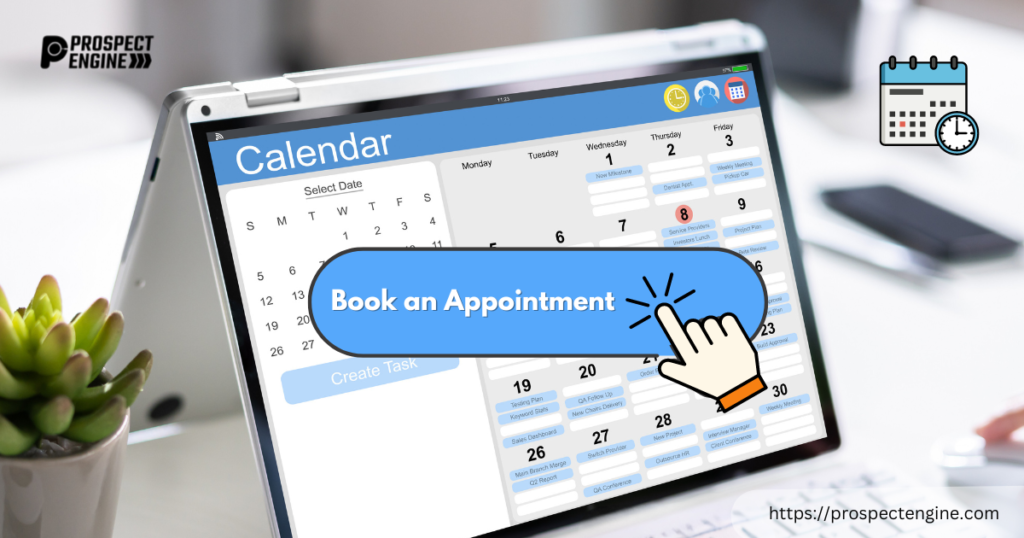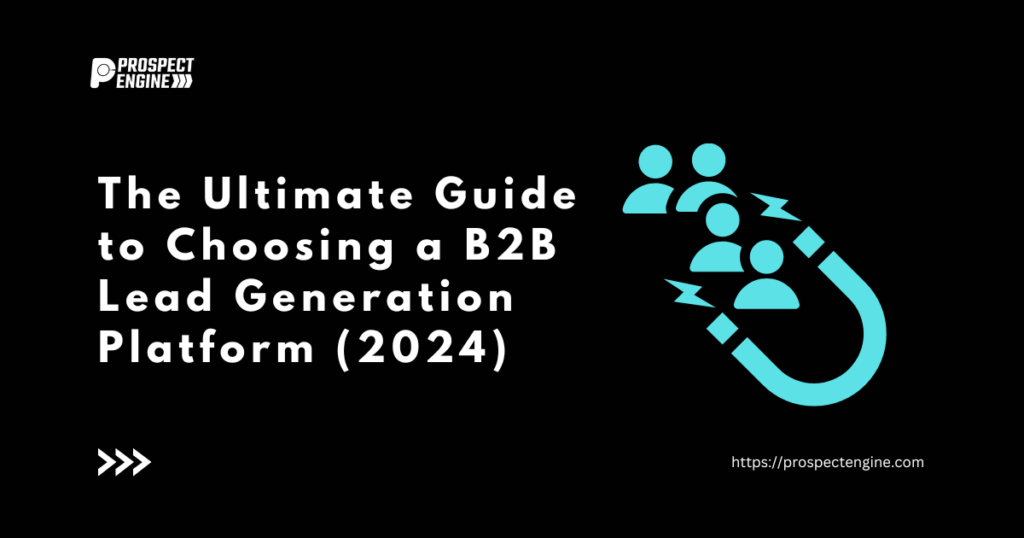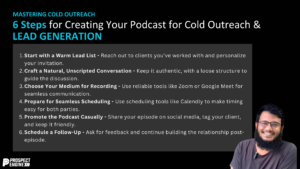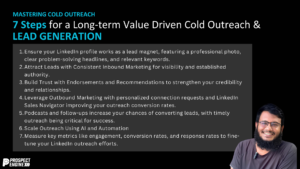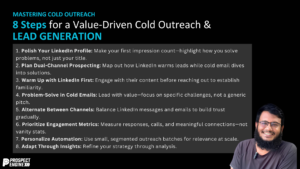In today’s fast-paced business world, finding and nurturing potential clients is crucial for success. That’s where a B2B lead generation platform comes in handy. But with so many options available, how do you choose the right one for your business? This guide will walk you through the process, helping you make an informed decision that aligns with your company’s needs and goals.
Understanding B2B Lead Generation Platforms

Before looking deeper into the selection process, let’s clarify what a B2B lead generation platform is and why it’s important.
A B2B lead generation platform is a software tool designed to help businesses identify, attract, and convert potential customers (leads) into paying clients. These platforms often integrate with CRM systems and marketing automation tools to create a seamless workflow for your sales and marketing teams.
Key Benefits of Using a B2B Lead Generation Platform
- Increased efficiency in lead capture and management
- Better quality leads through targeted outreach
- Improved conversion rates
- Enhanced collaboration between sales and marketing teams
- Data-driven decision making
Factors to Consider When Choosing a B2B Lead Generation Platform
1. Your Business Goals and Needs
Start by clearly defining your business objectives. Are you looking to:
- Increase the number of leads?
- Improve lead quality?
- Streamline your sales process?
- Enhance customer engagement?
Understanding your goals will help you identify the features and capabilities you need in a lead generation platform.

2. CRM Integration
CRM integration is crucial for maintaining a smooth workflow. Look for a platform that easily connects with your existing CRM system. This integration allows for:
- Automatic lead data transfer
- Real-time updates
- Seamless communication between sales and marketing teams
Popular CRM systems like Salesforce, HubSpot, and Pipedrive often have pre-built integrations with leading B2B lead generation platforms.

3. Marketing Automation Capabilities
Marketing automation is a game-changer in lead nurturing. A good B2B lead generation platform should offer or integrate with marketing automation tools. This feature enables you to:
- Create and manage email campaigns
- Set up drip marketing sequences
- Track lead interactions and engagement
- Score leads based on their behavior

4. Lead Scoring and Qualification
Not all leads are created equal. Look for a platform that offers lead scoring and qualification features. These tools help you:
- Prioritize high-quality leads
- Focus your efforts on the most promising prospects
- Improve your sales team’s efficiency
5. Data Quality and Enrichment
The success of your lead generation efforts depends heavily on the quality of your data. Choose a platform that:
- Provides accurate and up-to-date lead information
- Offers data enrichment capabilities
- Helps maintain clean and reliable contact databases
6. Customization and Flexibility
Your business is unique, and your lead generation platform should be adaptable to your specific needs. Look for options that allow you to:
- Customize lead capture forms
- Tailor workflows to your sales process
- Create personalized outreach campaigns
7. Reporting and Analytics
Data-driven decision-making is key to improving your lead-generation efforts. Ensure the platform you choose offers robust reporting and analytics features, including:
- Real-time performance dashboards
- Custom report builders
- Key performance indicators (KPIs) tracking
8. User-Friendliness
A platform with a steep learning curve can hinder adoption and effectiveness. Opt for a solution that is:
- Intuitive and easy to navigate
- Offers comprehensive training and support
- Provides a smooth user experience for both sales and marketing teams
9. Scalability
As your business grows, your lead generation needs will evolve. Choose a platform that can scale with your company, offering:
- Flexible pricing plans
- The ability to handle increasing lead volumes
- Advanced features that you can activate as needed

10. Budget Considerations
While it’s important to invest in a quality lead-generation platform, it’s equally crucial to stay within your budget. Consider:
- The total cost of ownership, including setup and training
- The potential return on investment (ROI)
- Whether the platform offers a free trial or a money-back guarantee
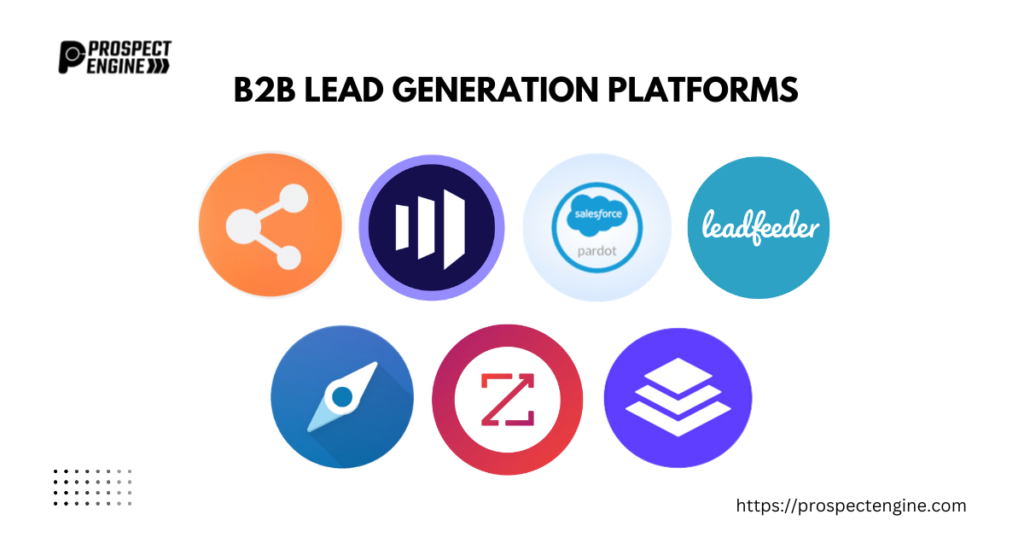
Popular B2B Lead Generation Platforms
To give you a starting point, here are some well-known B2B lead generation platforms to consider:
- HubSpot
- Marketo
- Pardot (Salesforce)
- LeadFeeder
- LinkedIn Sales Navigator
- ZoomInfo
- Leadpages
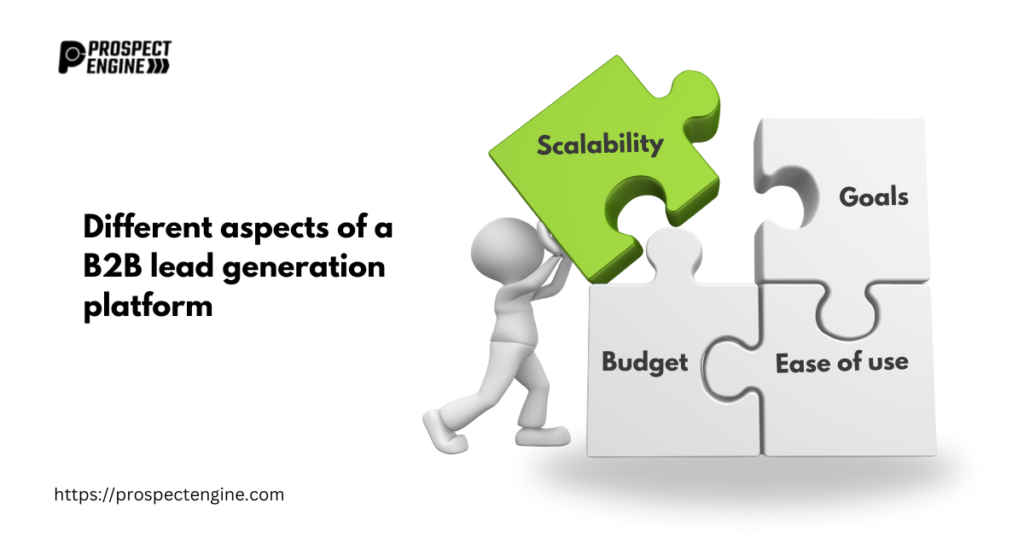
Each of these platforms has its strengths and may be better suited for different types of businesses or industries. It’s essential to research and compare them based on your specific needs.
Comparison of Popular B2B Lead Generation Platforms
To help you make an informed decision, here’s a comparison table of some popular B2B lead generation platforms and their key functionalities:
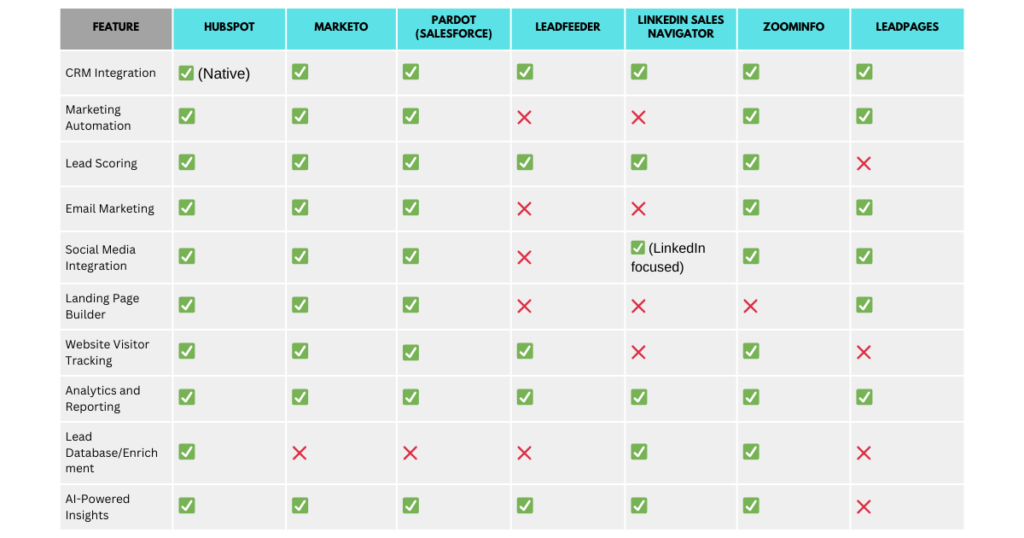
Please note that this table provides a general overview, and the specific features may vary depending on the subscription level or package you choose. Always check the latest offerings directly with the platform providers, as features and functionalities can change over time.
Beyond Features: Choosing the Right Fit for Your Business
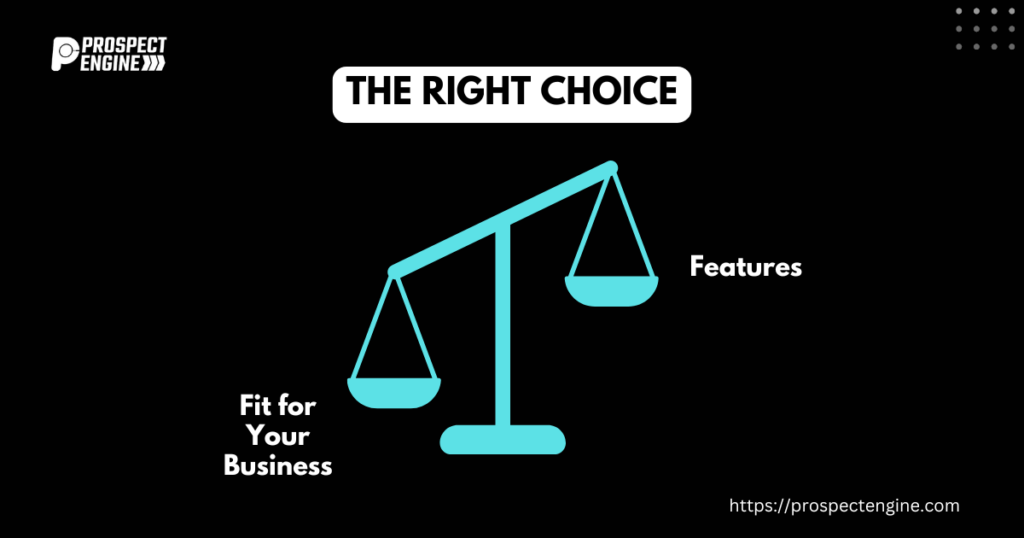
While the feature comparison table above provides a helpful overview, it’s crucial to understand that having the most features doesn’t necessarily mean a platform is the best choice for your business. Here’s why:
1. Align with Your Specific Needs
The best B2B lead generation platform for your business is the one that aligns most closely with your specific needs and goals. A platform with every feature imaginable might seem attractive, but if you’re not going to use half of those features, you could end up paying for unnecessary complexity.
2. Consider Ease of Use
A platform with fewer, but well-implemented features that your team can easily use might be more beneficial than a complex system with a steep learning curve. The easier the platform is to use, the more likely your team is to adopt it fully and use it effectively.
3. Scalability Matters
Look for a platform that can grow with your business. Sometimes, a simpler platform with room for upgrades or add-ons as your needs evolve can be a better long-term choice than starting with the most feature-rich option.
4. Integration Capabilities
The ability to integrate seamlessly with your existing tools and workflows can be more valuable than having a wide array of built-in features. A platform that works well with your current CRM and other software can significantly improve your team’s efficiency.
5. Budget Considerations
More features often come with a higher price tag. Consider the return on investment (ROI) you expect from each feature. It might be more cost-effective to choose a platform with fewer but more relevant features for your business.
6. Support and Training
The level of customer support and available training resources can be just as important as the features themselves. A platform with fewer features but excellent support might provide more value than a feature-rich platform with poor customer service.
7. Industry Relevance
Some platforms might have features that are particularly beneficial for your industry or business model. A platform with industry-specific features could be more valuable than a general-purpose platform with more features overall.
Remember, the goal is to find a B2B lead generation platform that enhances your specific business processes and helps you achieve your objectives efficiently. Take the time to assess your needs, consider your team’s capabilities, and evaluate how each platform aligns with your overall business strategy. The right choice is often the one that provides the best balance of relevant features, usability, scalability, and value for your unique situation.
Steps to Choose the Right B2B Lead Generation Platform
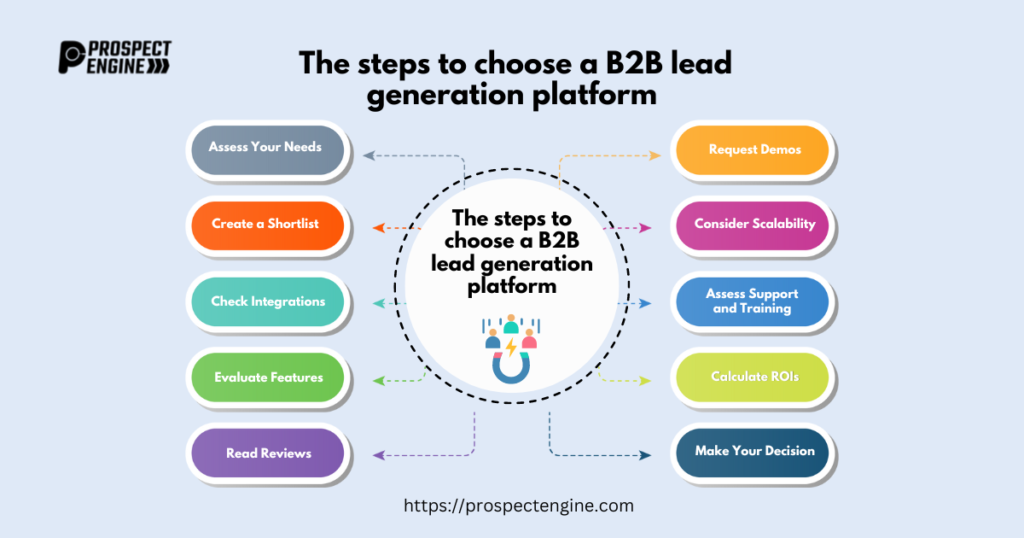
Now that we’ve covered the key factors to consider, let’s outline a step-by-step process to help you choose the right platform:
- Assess Your Needs: Start by clearly defining your business goals and the specific challenges you want to address with a lead generation platform.
- Create a Shortlist: Based on your requirements, research and create a list of potential platforms that seem to fit your needs.
- Check Integrations: Ensure the platforms on your shortlist integrate well with your existing CRM and marketing tools.
- Evaluate Features: Compare the features of each platform against your list of required capabilities.
- Read Reviews: Look for user reviews and case studies to get real-world insights into each platform’s performance and reliability.
- Request Demos: Schedule demonstrations with your top choices to see the platforms in action and ask specific questions.
- Consider Scalability: Think about your future needs and ensure the platform can grow with your business.
- Assess Support and Training: Look into the level of customer support and training resources offered by each provider.
- Calculate ROI: Estimate the potential return on investment for each platform based on your budget and expected outcomes.
- Make Your Decision: Based on all the information gathered, choose the platform that best aligns with your needs, goals, and budget.
Implementing Your Chosen B2B Lead Generation Platform
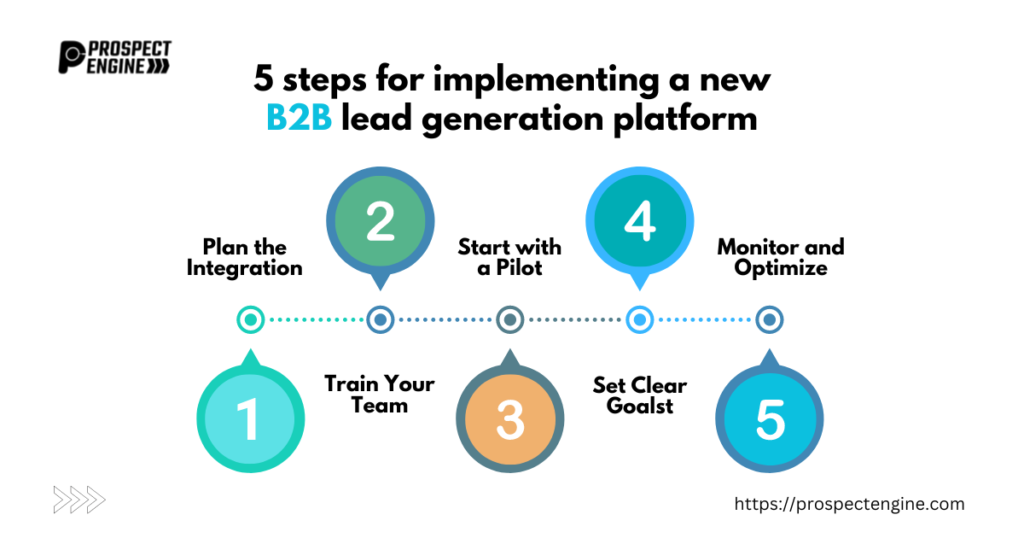
Once you’ve selected a platform, follow these tips for successful implementation:
- Plan the Integration: Work with your IT team or the platform’s support staff to plan a smooth integration with your existing systems.
- Train Your Team: Ensure all users receive proper training on how to use the new platform effectively.
- Start with a Pilot: Consider running a pilot program with a small team before rolling out the platform company-wide.
- Set Clear Goals: Establish clear, measurable objectives for your lead generation efforts.
- Monitor and Optimize: Regularly review your platform’s performance and make adjustments as needed to optimize results.
Conclusion

Choosing the right B2B lead generation platform is a crucial decision that can significantly impact your business’s growth and success. By carefully considering your needs, evaluating key features, and following a structured selection process, you can find a platform that streamlines your lead-generation efforts and boosts your sales performance.
Remember, the best platform for your business is one that aligns with your goals, integrates seamlessly with your existing tools, and provides the features you need to capture, nurture, and convert high-quality leads.
Are you prepared to elevate your B2B lead generation strategy?
Our solutions can help you optimize your process and drive measurable results. Book an appointment with our experts today to discuss how we can help you choose and implement the perfect lead-generation platform for your business.
Don’t let valuable leads slip through the cracks. Invest in the right B2B lead generation platform and watch your business grow. Book an appointment now!
